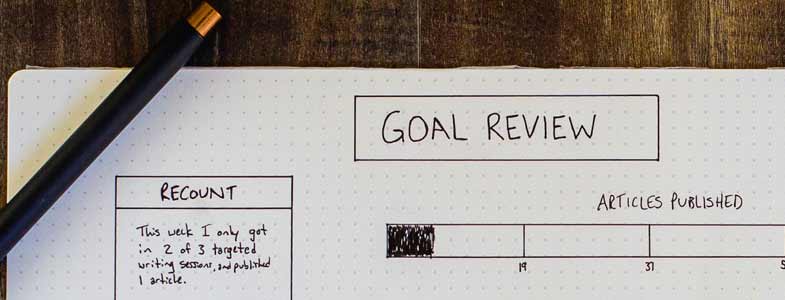
If you are staring at a budget planner and you don’t know what to write in it, or where to start, then this article is going to help you. In this article, we will analyze the info most people write down, why they’re doing it, and everything else that’s important to know before you begin.
First, why do people need budget planners?
To take better care of their finances.
How do budget planners actually help?
At its core, a budget planner will help you in two ways:
They help you calculate your net income
They help you keep track of your spending
And if you have a clear picture of both these aspects, then you can take action and adjust them accordingly. If you have a clear picture of your spending habits, then it’s easier to decide which one to cut to do some saving. For example, a lot of people order food and don’t have the slightest idea of how much more they’re spending in comparison to cooking their own food. If you regularly write down how much you spend on takeout and then experiment with cooking exclusively for a while and write down grocery expenses, you will have the possibility to compare and decide what’s best for you in the future. Depending on the cost of groceries versus takeout, you might find out that the time and money saved are not worth the trouble. Or, on the contrary, you might realize that you can save $1,000/month with little effort. The point I’m trying to make is that without keeping track and having a clear picture, it’s very hard to improve on the financial side.
And now let’s see more precisely:
What do people write down in a budget planner?
- Net Monthly Income – this means that after taxes, after payroll deductions, after retirement, and any other deductions you might have, this is the exact amount you have in your wallet at the beginning of the month or after receiving your paycheck.
- Fixed and Regular Monthly Expenses – these are the ones that do not change from month to month. Examples: rent, cell phone bill, car payment. And the ones that change depending on seasonality. Examples: birthday gifts, vacations, clothing, and Christmas shopping.
In addition to these two items above, which are essential, people are also writing down their goals, plans, and adjustments, and, most importantly, they’re regularly reviewing their budget planners to spot places where they could improve their income and expenses.
If you want more details about what people are writing in their budget planners, then let’s dive deeper and look over a few examples. We’ll cover what you need to know in the chapters about calculating income and expenses.
What do you need to do to calculate your income?

First, you’d have to earn something. There’s no point in taking on budget planning if you don’t have a source of income. Try to get hired first or try to earn money through alternative methods. If you don’t have a stable income yet, check out this article, which will show you examples of how you can make money online. It’s not very difficult, you just need will and perseverance.
After you’ve established a source of income, the next step that you need to understand is how to note down and calculate your income. Here you will have to write down only your net income. This means the money that is physically available in your wallet or on your card that you can use as you please (this does not include your retirement money, taxes, or other similar expenses). If, for example, you’re getting two paychecks, write down paycheck 1 and paycheck 2 next to income. Aside from these, what you should also include here is any “side hustle”. For instance, maybe you’re selling jewelry on Etsy because you enjoy making it. Or maybe you’re passionate about grammar and you’ve offered your editing services on a freelancing website. All of these activities should be included under income, even if it’s not regular income.
In the end, you add them up and you’ll know the exact amount that you have at your disposal. If you think it’s too small and you have spare time, constantly think about methods through which you can increase it.
What do you need to do to calculate your expenses?
This is the problem that most users are facing: while income is not difficult to calculate, as it’s usually pretty straightforward, when it comes to expenses things tend to become much more complicated. Most people don’t have the slightest idea how their money is spent every month. In order to do a good job with this, you need two assets:
- Awareness
- Perseverance
You need awareness every time you make an expense, to write it down immediately or keep it in mind and write it down as soon as possible. This awareness can be cultivated in time only through trial and error. In the beginning, you can compensate a little by setting up a system and trying to stick to it by all means. For example, each night before going to bed, you’ll mentally review all the activities that happened that day and write down all the payments you’ve made (especially the ones that you haven’t had time to write down or that you’ve forgotten about). A small budget planner that you can always have with you can also be a helpful solution when you’re trying to build a habit.
You don’t have to get discouraged if you forget to write down something. Even if it gets left out after a daily and weekly review. What’s most important is to constantly take notes so that, at the end of the month, you’ll have the possibility to review your expenses, come to a conclusion, and make the necessary adjustments for the current month. It’s not the end of the world if you forgot to note down a meal or grocery shop at some point. What’s essential is that you manage to make a habit out of writing things down in your planner.
Perseverance is by far the most important thing. It’s what will make the difference between someone who is disciplined and someone who doesn’t know what they’re wasting their hard-earned money on. In my opinion, the easiest way to become more perseverant is by following other people’s examples. If you’re not surrounded by perseverant people, try to find them, make friends with them, ask them about their motivations and steal their “trade secrets”. You can also read books on this topic. I would recommend Steven Pressfield’s “Do The Work” and Brian Tracy’s “Eat the Frog”.
Goals, future plans, and optimizations

I believe you shouldn’t complicate yourself with them until you’ve managed to master the basics. More specifically, this is what this means from my point of view: move on to this chapter only after you’ve managed to consistently track your income and expenses for at least 2-3 months. Only after you’ve built solid tracking habits should you move on to optimizations. See where most of your money is going and think if it’s worth it. Identify patterns like going out too often, buying too much food and then wasting it, tipping too much, taking the taxi too often, and so on. Once you’ve become aware of them, you can start the elimination process. Compare your activities with what others are doing and you might notice that they’re spending much less on certain needs (such as food). There are plenty of YouTube videos teaching you how to save money, but you can do this on your own once you clearly identify the problem. Choose one major improvement a month (don’t try to do too many changes at once) and move on to the next only after you’ve incorporated the first one. Like this, step by step, you will improve your financial situation!
